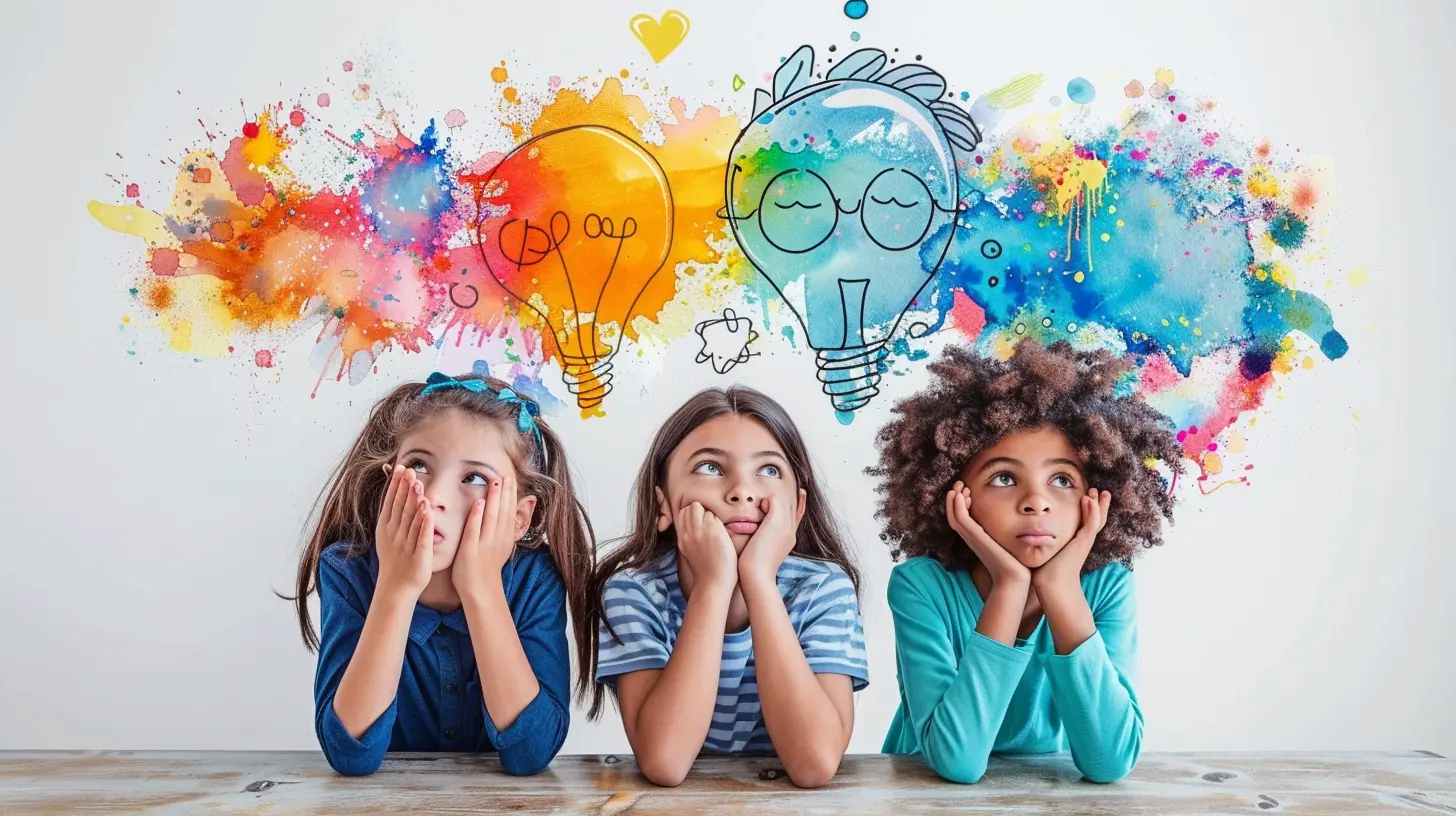"Fostering Emotional Intelligence in Early Childhood Education
1 September 2025
Emotional intelligence (EI) is just as important as academic learning, especially during early childhood. In fact, a child who knows how to manage their emotions, empathize with others, and handle social situations is often better prepared for life's challenges than one who only excels in math or reading.
But how exactly do we foster emotional intelligence in young children? And why does it matter so much? Let’s dive into the world of early childhood education and emotional intelligence to find out.

What is Emotional Intelligence?
Put simply, emotional intelligence refers to the ability to recognize, understand, and manage emotions—both our own and those of others. It involves skills like self-awareness, empathy, emotional regulation, and social communication.Psychologist Daniel Goleman popularized the concept and broke it down into five key components:
1. Self-awareness – Recognizing one’s own emotions.
2. Self-regulation – Managing emotions in a healthy way.
3. Motivation – Using emotions to drive positive behavior.
4. Empathy – Understanding and sharing the feelings of others.
5. Social skills – Building strong relationships and navigating social interactions.
For young children, developing these skills early can make a world of difference in their future.

Why Emotional Intelligence Matters in Early Childhood
Many people assume that a child’s success depends primarily on IQ, but research proves otherwise. Emotional intelligence plays a crucial role in a child’s overall development and well-being. Here’s why it’s so important:1. Better Emotional Regulation
Children with high emotional intelligence are better at handling frustration, anger, and disappointment. Instead of throwing tantrums when things don’t go their way, they learn to express their emotions in healthier ways.2. Stronger Relationships
Kids who understand their own emotions and recognize feelings in others tend to build deeper, more meaningful connections. They’re better at sharing, cooperating, and resolving conflicts—essential skills for both childhood and adulthood.3. Improved Academic Success
Studies show that children with strong emotional and social skills perform better in school. A well-regulated child can focus better, handle stress effectively, and interact positively with teachers and classmates.4. Enhanced Problem-Solving Skills
Emotional intelligence helps children approach problems with a calm and rational mindset. Instead of reacting impulsively, they learn to assess situations, consider possible solutions, and make thoughtful decisions.5. Increased Resilience
Life is full of ups and downs, and kids who develop emotional intelligence early are more resilient when faced with challenges. They learn how to bounce back from setbacks, adapt to new situations, and maintain a positive outlook.
How to Foster Emotional Intelligence in Early Childhood
Now that we understand why emotional intelligence is so important, let’s look at practical ways to nurture it in young children.1. Teach Emotional Awareness
Before kids can manage their emotions, they need to recognize them. Encourage children to name their feelings—whether they’re happy, sad, frustrated, or excited.- Use picture books and storytelling to discuss different emotions.
- Ask questions like, “How do you think the character is feeling?”
- Model emotional expression by talking about your own feelings in daily life.
2. Encourage Empathy
Empathy is the ability to put yourself in someone else’s shoes. Teaching kids to recognize and understand the emotions of others builds compassion and kindness.- Discuss how others might feel in different situations.
- Role-play scenarios where they practice responding with kindness.
- Praise children when they show empathy, like comforting a friend who’s upset.
3. Help Kids Manage Their Emotions
Young children experience strong emotions, but they often don’t know how to handle them. Instead of suppressing feelings, teach kids healthy ways to regulate their emotions.- Encourage deep breathing exercises during stressful moments.
- Create a “calm corner” where children can relax and collect themselves.
- Teach problem-solving techniques, such as talking about feelings instead of acting out.
4. Promote Social Skills
Interacting with others is a crucial part of emotional intelligence. Help children develop essential social skills like cooperation, communication, and conflict resolution.- Encourage teamwork and group activities.
- Practice role-playing different social scenarios.
- Teach polite communication, such as using “please” and “thank you.”
5. Model Positive Behavior
Children learn more from what they see than what they’re told. If you want kids to develop emotional intelligence, model it yourself.- Show patience and understanding in stressful situations.
- Treat others with kindness and respect.
- Acknowledge and express your own emotions in a healthy way.
6. Encourage Open Communication
Children should feel safe and comfortable expressing their emotions. Foster an environment where they can talk openly about their feelings without fear of judgment.- Ask open-ended questions about their day and feelings.
- Validate their emotions by saying, “I understand you’re feeling upset.”
- Encourage them to share their thoughts and concerns with you.
7. Use Play to Teach Emotional Skills
Playtime is one of the best ways for kids to learn emotional intelligence. Games, role-playing, and creative activities allow children to explore feelings in a safe and fun way.- Use puppets or dolls to act out different emotions and social situations.
- Play cooperative games that require teamwork and communication.
- Encourage art and storytelling to help kids express their feelings creatively.

Challenges in Teaching Emotional Intelligence
Fostering emotional intelligence isn’t always easy. Every child is different, and some may struggle more than others with certain emotional skills. Common challenges include:- Difficulty recognizing emotions – Some children need extra help identifying their feelings.
- Impulsivity – Young kids naturally act on impulse, making self-regulation difficult.
- Limited vocabulary – Toddlers and preschoolers may not yet have the words to express their emotions.
- Environmental influences – Stressful home environments can make emotional development more challenging.
The key is patience. Emotional intelligence doesn’t develop overnight, but with consistent guidance, children will gradually learn these crucial skills.
The Role of Schools and Teachers
While parents play a significant role in fostering emotional intelligence, schools and teachers are equally important. Early childhood educators can create supportive environments that encourage emotional growth by:- Integrating social-emotional learning (SEL) into the curriculum.
- Using classroom discussions to talk about emotions and social skills.
- Encouraging group activities that promote teamwork and communication.
- Helping children resolve conflicts in a positive manner.
When schools prioritize emotional intelligence, they create a generation of emotionally aware, empathetic, and resilient individuals.
Final Thoughts
Fostering emotional intelligence in early childhood is one of the greatest gifts we can give our children. It prepares them not just for school but for life—helping them navigate relationships, handle challenges, and become kind, well-adjusted individuals.Whether you’re a parent, teacher, or caregiver, take the time to nurture emotional intelligence in the young minds around you. It’s an investment that will pay off for years to come.
all images in this post were generated using AI tools
Category:
Emotional IntelligenceAuthor:

Eva Barker
Discussion
rate this article
1 comments
Harlow McHugh
Emotional intelligence in early childhood isn’t just a buzzword; it’s the foundation for future success. Cultivating empathy, self-regulation, and social skills in young learners equips them to navigate life’s complexities. Let’s prioritize these essential skills in our classrooms—because emotional savvy is just as vital as academic prowess!
September 17, 2025 at 2:30 AM

Eva Barker
Absolutely! Prioritizing emotional intelligence in early childhood lays a crucial foundation for success, equipping children with essential skills for navigating life. Thank you for underscoring its importance!


